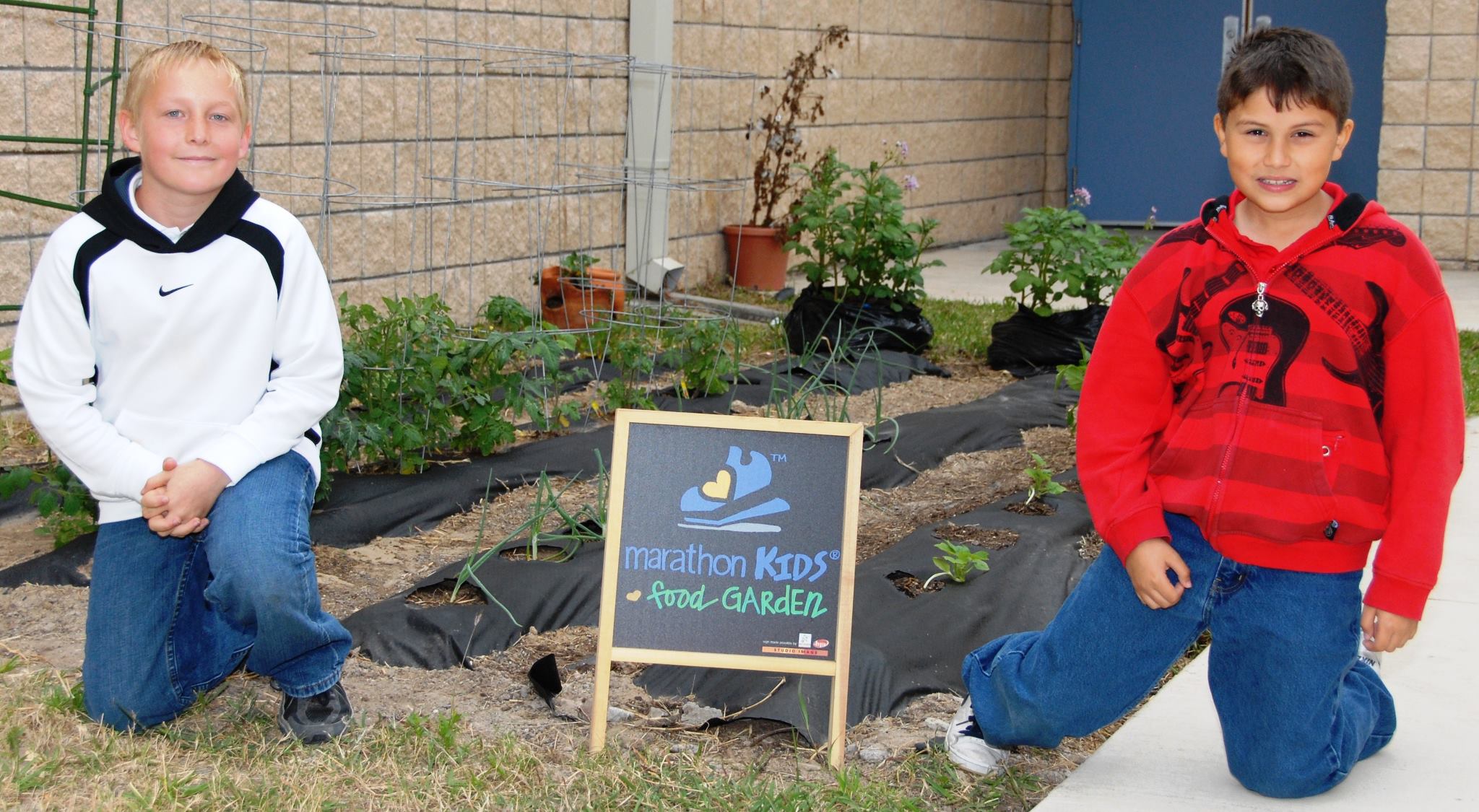The formula of eat-right-and-exercise has been sound advice for good health for a long time, but that advice was directed at adults, not children. Kids were small packages of perpetual energy, streaking down the street on bicycles, running the bases, or jumping rope in a hot double-dutch. They ate balanced meals and snacked on fruit.
That’s an idealized image, of course, but not too far from the reality of decades past. Today's reality is different for many children, who often aren't moving or eating well.
About 35 percent of third- through 12th-graders in the Austin Independent School District are overweight or obese, according to a 2008 Fitnessgram survey.
Those extra pounds can bring a range of health problems. Overweight children have a greater risk of developing diabetes and the symptoms that are precursors to heart disease, according to a study by the Children’s Hospital Association of Texas. Overweight children also miss school more frequently and may have lower self-esteem because of the stigma attached to this issue.
Central Texas has a financial incentive to help children maintain a healthy weight as well. Obese children visit physicians and hospitals more frequently than healthy-weight children, as do obese adults. In 2005, Texans had more than $1.37 billion in obesity-related medical costs, according to the Children’s Hospital Association study. Some of those costs fall to individuals and some to the government through Medicare and Medicaid.
Medical experts say that lifestyle changes can reduce the rate of overweight children. But can a community successfully encourage its families to get kids moving and eating healthy food? Two Austin organizations — Marathon Kids and Sustainable Food Center — are working both ends of that equation to support healthier Central Texas children.
![]()
 Marathon Kids teaches joy in moving
Marathon Kids teaches joy in moving
Rebecca McIlwain, Marathon Kids’ Director of Innovation and Program Development, uses an unexpected word in the obesity battle: joy.
“We have been removed from the natural joy of moving our bodies and feeding our bodies in healthy ways,” she says. Marathon Kids strives to “reconnect us to that joy” through a simple program of getting kids moving and teaching families about making healthy food choices.
 The atmosphere is indeed joyous at Marathon Kids events. There are big smiles all around as elementary children begin to incrementally run or walk the 26.2-mile marathon. And there are bigger smiles — huge, even — six months later when they complete the Final Mile event and earn a medal.
The atmosphere is indeed joyous at Marathon Kids events. There are big smiles all around as elementary children begin to incrementally run or walk the 26.2-mile marathon. And there are bigger smiles — huge, even — six months later when they complete the Final Mile event and earn a medal.
McIlwain attributes the increase in childhood obesity to several causes. She said that too many kids today:
- Do not get enough physical activity. Some statistics say 25 percent of children's waking hours are spent in front of a screen.
- Have a diet that mainly consists of processed foods of low nutritional value instead of fruits and vegetables.
- Ingest too many sodas and other sweetened beverages — products that are cheap, well-advertised and available everywhere.
- Eat out too often, and eat large portion sizes.
McIlwain says that Marathon Kids is helping address alarming obesity trends by getting 90,000 Central Texas kids and 250,000 children nationwide moving with one special word: joy.
“Moving is joyful. Eating nutritious foods is pleasurable. These are things that make us feel good, make us feel happy,” she says.
That the program is non-competitive helps as well. Pressure, McIlwain says, “squeezes out the fun for some kids.”
“In this program, kids who might view themselves as non-athletic run or walk in ¼ or ½ mile increments. Over time, they develop more stamina, and that helps them grow more confident. It also opens them up to experiencing the fun of moving. It’s about a joyful community.”
Participating kids chart their running progress on a log, and they also keep a food log to record their intake of fruits and vegetables. This log represents Marathon Kids’ other emphasis, nutrition. Children are encouraged to try a variety of fruits and vegetables by using a “Checklist of Healthy Eating” 26.2 days of each month.
 Using the log also involves parents in making healthy food choices for their families. Because Marathon Kids is a school-based program, teachers provide nutrition education, including learning where vegetables really come from — the garden or farm.
Using the log also involves parents in making healthy food choices for their families. Because Marathon Kids is a school-based program, teachers provide nutrition education, including learning where vegetables really come from — the garden or farm.
Marathon Kids partners with local nonprofit agencies, including the Sustainable Food Center, to support the nutrition side of the effort to reduce childhood obesity.
Learn More about Marathon Kids
![]()
 Sustainable Food Center shows how to grow and prepare meals
Sustainable Food Center shows how to grow and prepare meals
Texas ranks third in the nation for food insecurity. That means that more than 15 percent of Texas households lack the means to provide consistent nourishment for maintaining health.
Sustainable Food Center, based in Austin,is working to create healthy food options and habits that will support health of the community for generations to come.
“Access to fresh, nutritious, affordable food is vital in promoting community health and preventing disease,” says Executive Director Ronda Rutledge.
SFC’s programs are devoted to growing produce, providing a local distribution system for farm-fresh foods, and teaching parents how to transform healthy food into affordable and delicious meals for their families.
 GrowLocal is SFC’s lead program, which encourages planting of local gardens. Through the Sprouting Healthy Kids program, the organization partners with 50 Austin schools to plant and maintain gardens. The goal is to help the more than 100 Austin campuses get gardening by 2015.
GrowLocal is SFC’s lead program, which encourages planting of local gardens. Through the Sprouting Healthy Kids program, the organization partners with 50 Austin schools to plant and maintain gardens. The goal is to help the more than 100 Austin campuses get gardening by 2015.
“Students of all ages just love gardening," Rutledge says. "They love digging in the dirt, and they love harvesting the produce they’ve grown. I’ve seen kids pull a carrot out the ground, shake off the dirt, and crunch away. They say they never knew a carrot could taste so good,”
Sprouting Healthy Kids includes three main components: locally grown, fresh fruits and vegetables served in school cafeterias; classroom lessons to introduce students to healthy food and food systems; and the hands-on afterschool gardening and cooking program.
SFC's second goal is to establish farmers’ markets. The Farm Direct program gives local growers direct access to urban residents who want freshly harvested produce. This is important because many Austinites live in food deserts, areas without access to affordable fruits, vegetables, whole grains, low fat milk, and other healthy foods.
Rutledge says that, for some Austinites, there is no full- service grocery store nearby or on a public transportation line. Food deserts are also noted for an overabundance of fast-food restaurants, which compounds nutrition problems, Rutledge says.
service grocery store nearby or on a public transportation line. Food deserts are also noted for an overabundance of fast-food restaurants, which compounds nutrition problems, Rutledge says.
“Childhood obesity causes weight-related illnesses that should never afflict children,” Rutledge says. “But they do, and kids with poor nutrition also experience other problems such as dental concerns, not to mention the psychological and social issues that obesity instigates. These are all things that are avoidable, and that’s the real shame.”
SFC is proud of its weekly farmers’ market at the YMCA East, in a part of town that is one of these food deserts. Farmer-vendors even offer “double dollars” for consumers in the Supplemental Nutrition Assistance and Women, Infants, and Children programs.
Food preparation comes next. SFC’s Happy Kitchen/La Cocina Alegre offers a cooking and nutrition education program that is aimed at preventing diet-related diseases — and providing delicious meals for families. Rutledge says that the reliance on “food-like” substances — packaged snacks and side dishes, and sugary drinks — is contributing to the rise in obesity.
 “I don’t fault parents for this situation," Rutledge says. "There is no lack of love or caring. I’ve never met a parent who didn’t want their child to be healthy, who didn’t want to provide the best for them … but many parents aren’t aware that affordable and delicious alternatives exist to unhealthy eating.”
“I don’t fault parents for this situation," Rutledge says. "There is no lack of love or caring. I’ve never met a parent who didn’t want their child to be healthy, who didn’t want to provide the best for them … but many parents aren’t aware that affordable and delicious alternatives exist to unhealthy eating.”
The local and healthy food movement is building momentum, Rutledge says. She predicts a decline in sales of those “not food” items as fruit and veggie consumption increases. For children, she believes the good habits learned now will ensure a healthy adulthood, and a passing on of good nutrition to the next generation.
SFC’s programs are growing quickly. The agency has outgrown its capacity to keep pace with the demand for its services and is constructing new headquarters that will open next spring in East Austin. It will, of course, have a fabulous garden.















